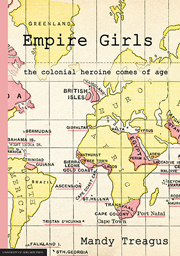1 - Introduction
Published online by Cambridge University Press: 05 September 2014
Summary
Ambivalence and the Other: discursive conflicts in white women's writing from the Second World
This book concerns the Bildungsroman, a form of the novel so dominant that it is rarely examined explicitly. The form is generally understood as one that outlines the growth of an individual from youth into maturity, a growth entailing character development culminating in accommodation between the individual and society. Ultimately, such accommodation results in the mature individual finding a place in his or her world. As M.H. Abrams suggests, ‘The subject of these novels is the development of the protagonist's mind and character, in the passage from childhood through varied experiences – and often through a spiritual crisis – into maturity, which usually involves recognition of one's identity and role in the world’ (193). The examples of the Bildungsroman examined here are very particular though: their writers all come from British colonies and feature female protagonists.
Just as ‘the novel stands as the central literary form of the nineteenth century’, so the Bildungsroman became the dominant form of that novel (Sussman 549), with many of the century's most celebrated titles examples of it. Jane Eyre, David Copperfield and Middlemarch are just a few representatives of the form which, in tracing the development of a protagonist from childhood to full productive citizenship, so captured the nineteenth-century imagination.
- Type
- Chapter
- Information
- Empire GirlsThe Colonial Heroine Comes of Age, pp. 1 - 26Publisher: The University of Adelaide PressPrint publication year: 2014



